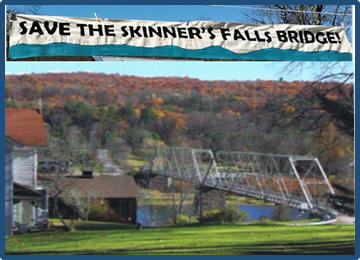County plans to update zoning to regulate gas development
January 21, 2011Have Public Servants Charged with Protecting Drinking Water for 15 Million People Sold Out to the Gas Drilling Industry?
January 23, 2011Over the last decade, operators in the natural gas industry have developed highly sophisticated methods and materials for the exploration and production of methane from unconventional reservoirs. In spite of the technological advances made to date, these activities pose significant chemical and biological hazards to human health and ecosystem stability. If future impacts may be inferred from recent historical performance, then:
• Between two and four percent of shale gas well projects in New York will pollute local ground-water over the short term. Serious regulatory violation rates will exceed twelve percent.
• More than one of every six shale gas wells will leak fluids to surrounding rocks and to the surface over the next century.
• Each gas well pad, with its associated access road and pipeline, will generate a sediment discharge of approximately eight tons per year into local waterways, further threatening federally endangered mollusks and other aquatic organisms.
• Construction of access roads and pipelines will fragment field and forest habitats, further threatening plants and animals which are already species of concern.
• Some chemicals in ubiquitous use for shale gas exploration and production, or consistently present in flowback fluids, constitute human health and environmental hazards when present at extremely low concentrations. Potential exposure effects for humans will include poisoning of susceptible tissues, endocrine disruption syndromes, and elevated risks for certain cancers.
• Exposures of gas field workers and neighbors to toxic chemicals and noxious bacteria are exacerbated by certain common practices, such as air/foam-lubricated drilling and the use of impoundments for flowback fluids. These methods, along with the intensive use of diesel-fueled equipment, will degrade air quality and may cause a recently described “down-winder’s syndrome” in humans, livestock and crops.
• State officials have not effectively managed oil and gas exploration and production in New York, evidenced by thousands of undocumented or improperly abandoned wells and numerous incidents of soil and water contamination. Human health impacts from these incidents appear to include abnormally high death rates from glandular and reproductive system cancers in men and women. Improved regulations and enhanced enforcement may reasonably be anticipated to produce more industry penalties, but not necessarily better industry practices, than were seen in the past.
Overall, proceeding with any new projects to extract methane from unconventional reservoirs by current practices in New York State is highly likely to degrade air, surface water and ground-water quality, to harm humans, and to negatively impact aquatic and forest ecosystems. Mitigation measures can partially reduce, but not eliminate, the anticipated damage.



